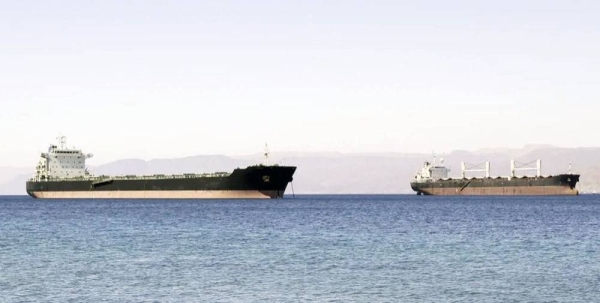Last December, after Yemen-based Houthis attacked international shipping in support of Hamas, the UK joined the US to lead the multinational Operation Prosperity Guardian in the Red Sea...reports Asian Lite News
As an ally of Ukraine, the United Kingdom has been an outspoken opponent of Russian aggression and moved first to provide Ukraine with tanks and long-range missiles.
As a participant in the multinational naval force working to neutralise the threat from Yemen-based Houthis to international shipping, it has raised its own military profile on the world stage. “We’ve acted at the forefront of global responses to maintain regional stability,” UK Defence Secretary Grant Shapps said in a speech to Lancaster House on Monday. In October, after the Palestinian group Hamas attacked Israel, the UK was among the first countries to send a Royal Navy task group, marines and surveillance planes off Israel.
Last December, after Yemen-based Houthis attacked international shipping in support of Hamas, the UK joined the US to lead the multinational Operation Prosperity Guardian in the Red Sea. On Friday, that force struck Houthi military sites after the Houthis targeted HMS Diamond and US Navy vessels with 21 drones and missiles. The UK used four RAF Typhoon FGR4s to drop Paveway IV guided bombs on two facilities, a site at Bani used to launch reconnaissance and attack drones, and the airfield at Abbs, used to launch cruise missiles and drones. “Early indications are that the Houthis’ ability to threaten merchant shipping has taken a blow,” said the Ministry of Defence in a statement. The UK has been raising its military profile globally and its defence budget at home. Shapps said defence spending, already at 50 billion pounds ($63bn) this year, would rise to 2.5 percent of gross domestic product (GDP) as soon as possible, and he called on other NATO allies to follow suit.
Some 15 percent of the world’s marine traffic passes through the Bab al-Mandeb Strait, which separates the Indian Ocean from the Red Sea. From there it reaches Europe through the Suez Canal. Among the most affected are container ships, bringing manufactured products from China to the European market. When Moller-Maersk, the world’s largest operator of container ships, said it was diverting its vessels around Africa on January 5, it prompted other shippers to do the same.
The diversion adds about 10 days shipping time, increases costs and could inflate prices. Maersk made its decision after Houthis attacked the Maersk Hangzhou on January 2. Oil tankers have been the other large category of ships affected, since they use Suez to bring Middle Eastern oil to European refineries. One-third of the world’s oil is moved by Greek-owned ships. Not everyone in Europe has seen a similar need for the use of force. Both Hamas and the Houthis are armed by Iran. A third Iran proxy, Lebanon-based Hezbollah, has also threatened to attack Israel. And there is the risk of Iranian direct involvement.On January 11, Iran seized an oil-filled tanker in retaliation for the confiscation by US authorities of a sanctioned Iranian oil cargo last year.An escalation could be a significant military challenge. The Israeli army is still fighting Hamas after more than three months of bombing and commando operations. Hezbollah is said to possess 150,000 rockets. And the Houthis may still have powerful weapons. They attacked a US-owned ship three days after the punitive attacks by the US and UK.
ALSO READ-Tory dy chairmen resign over vote

